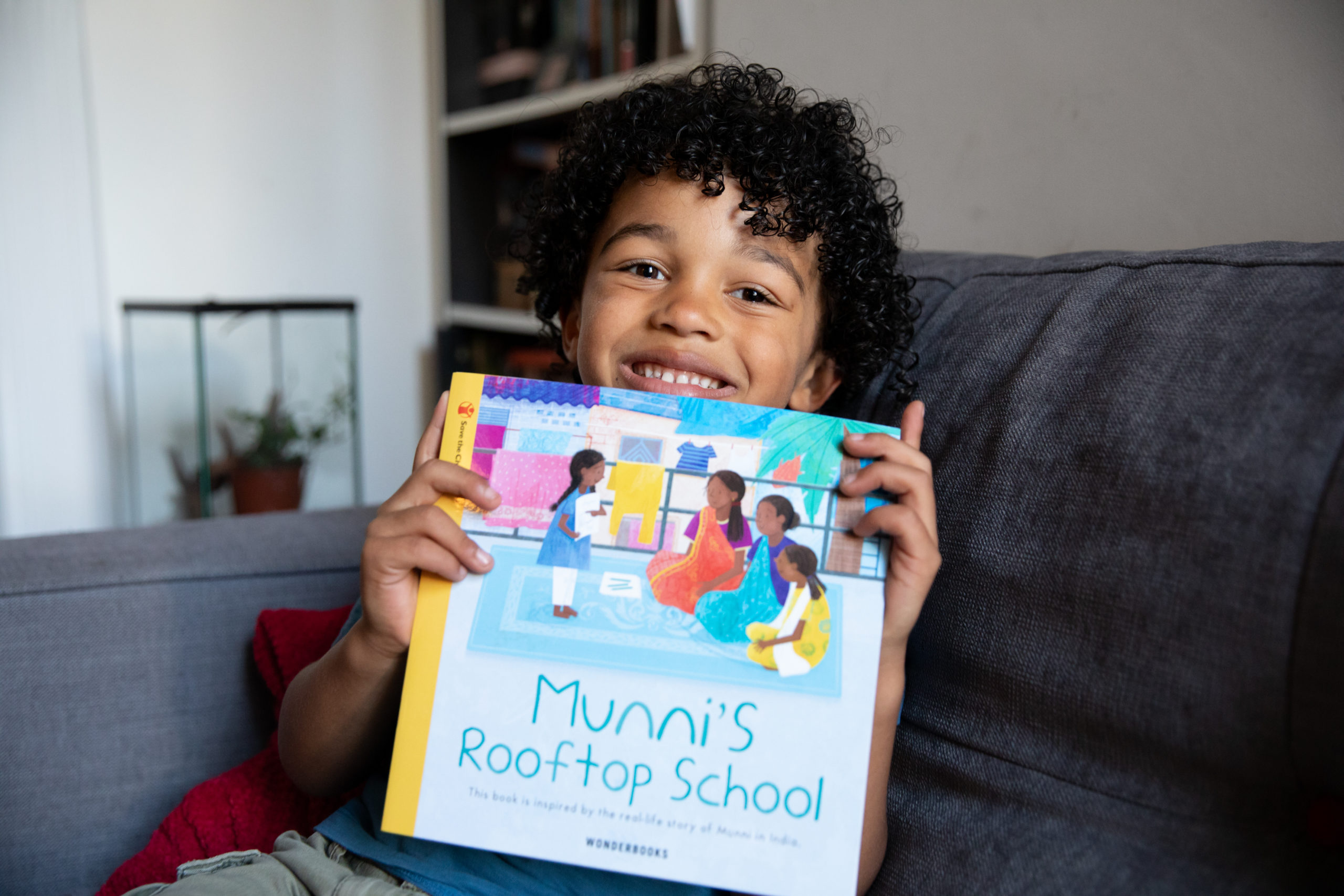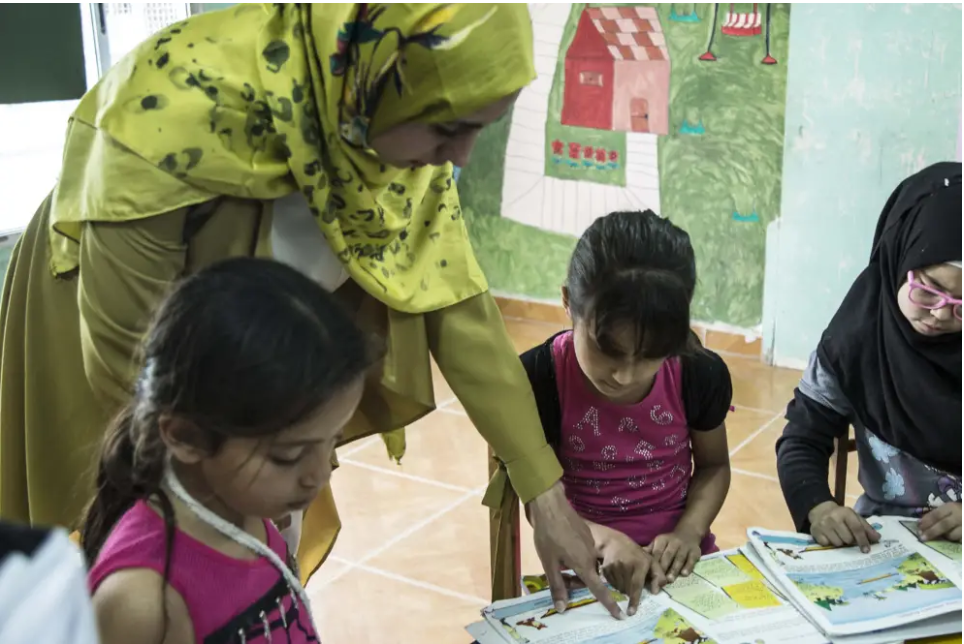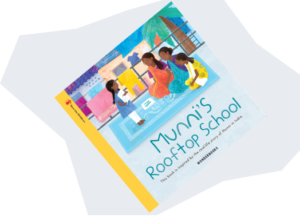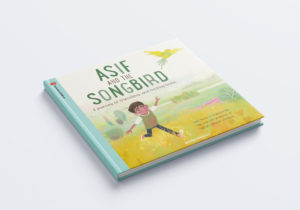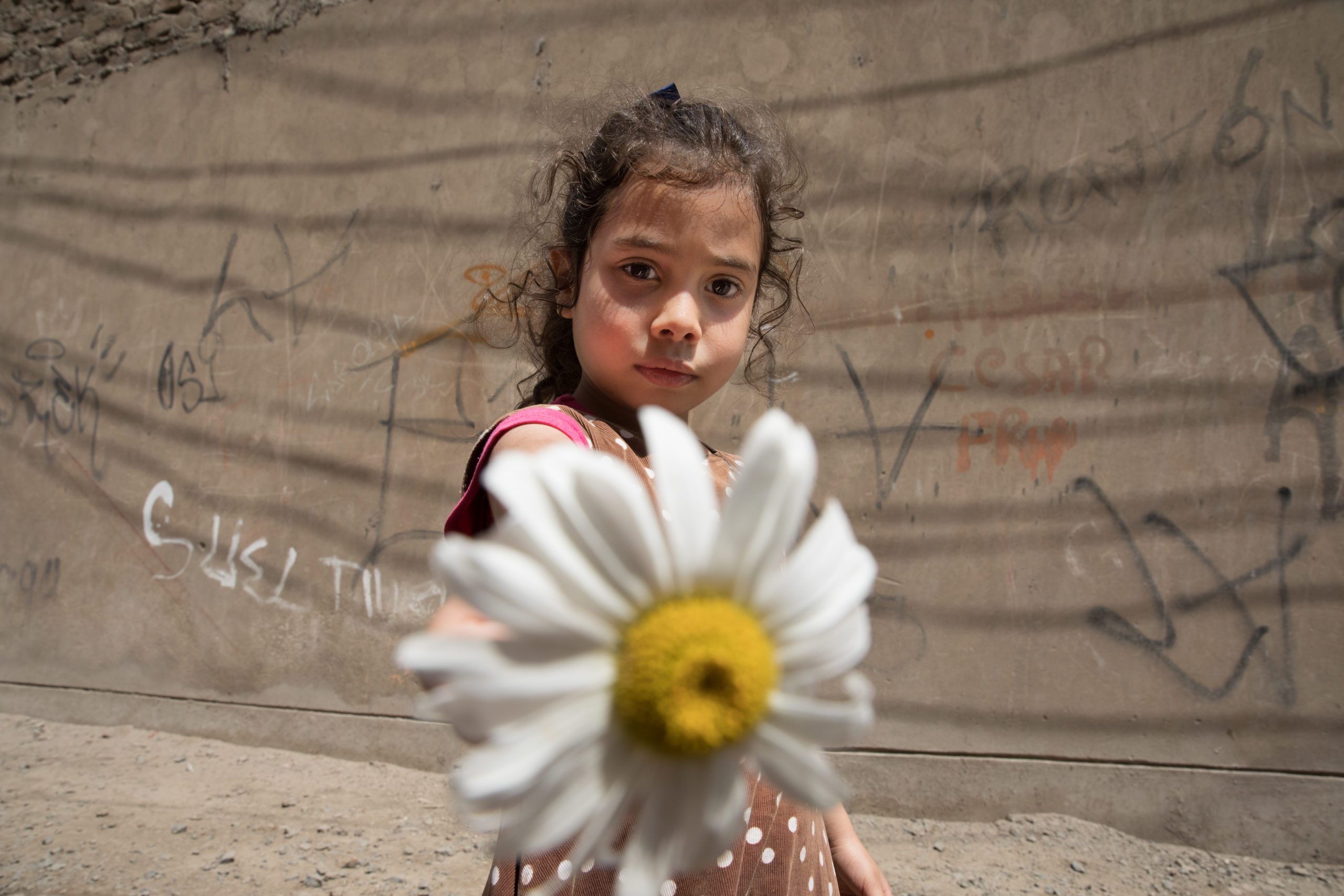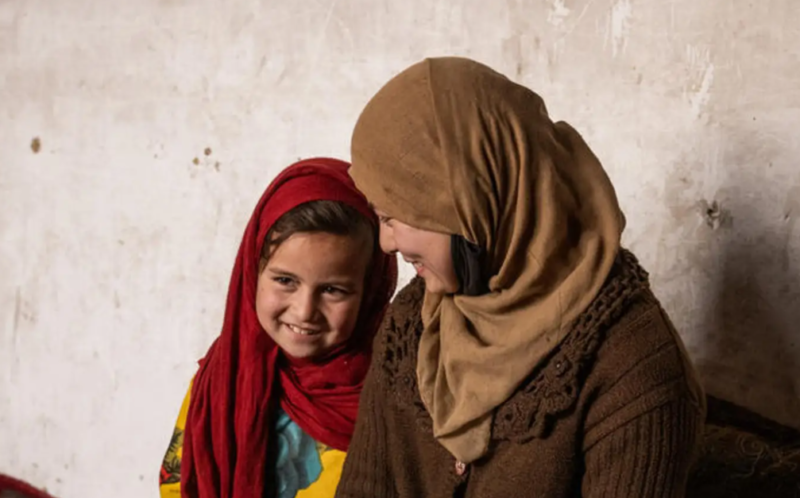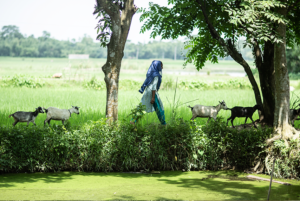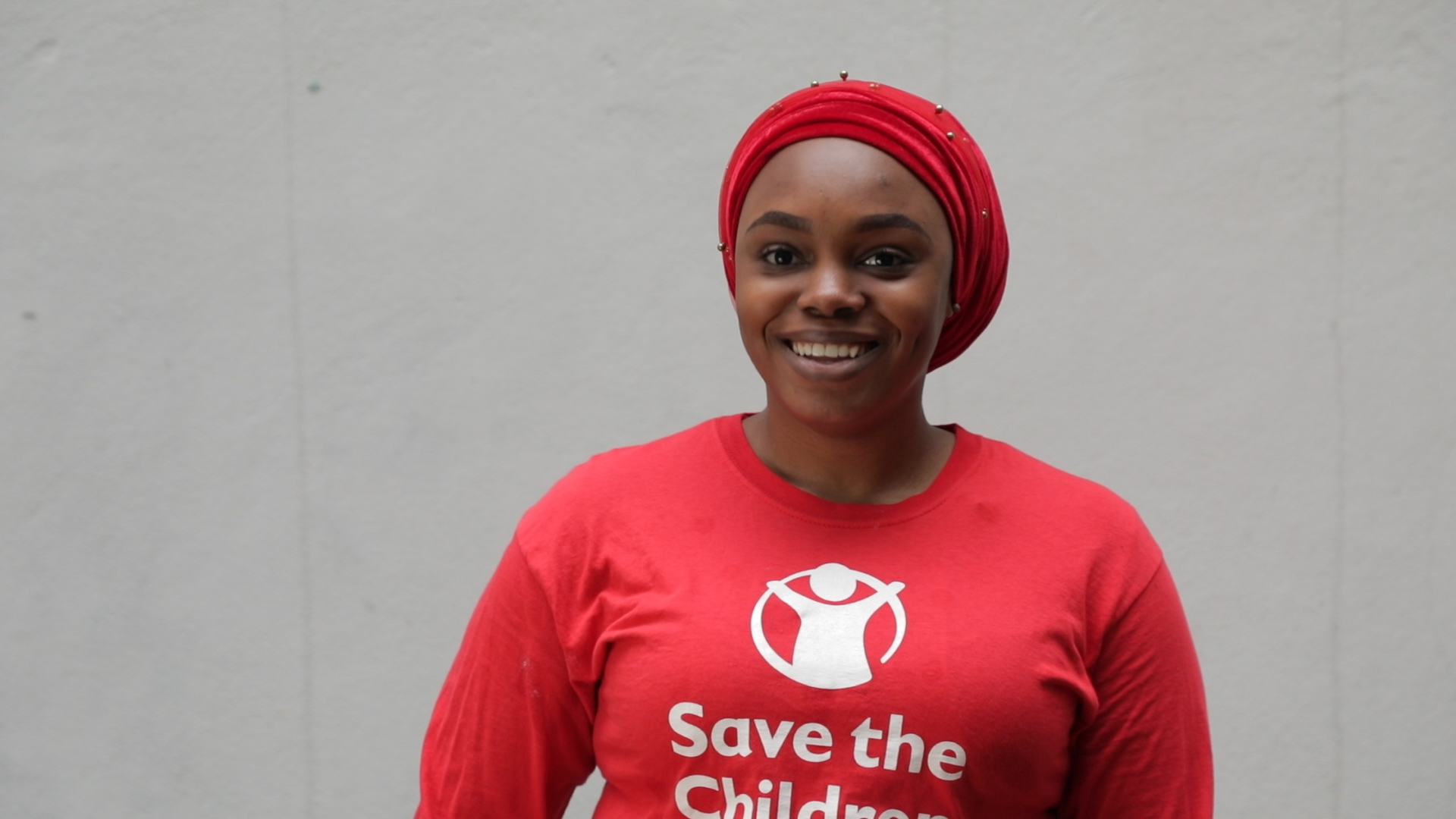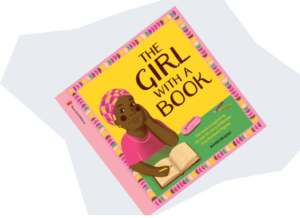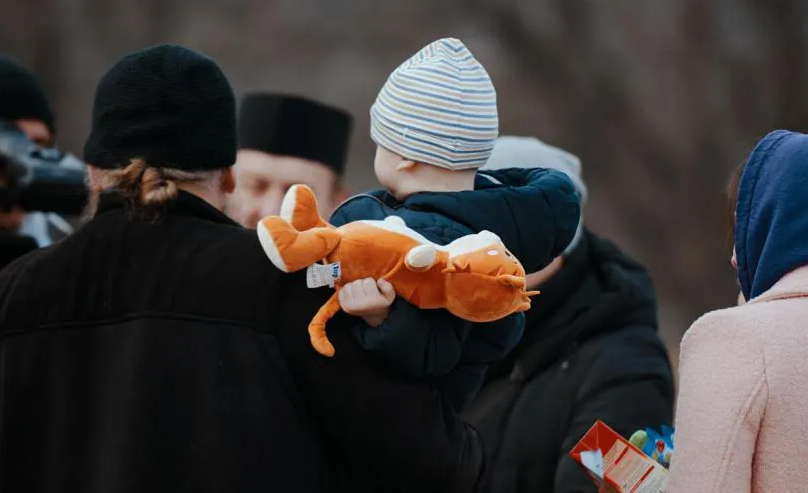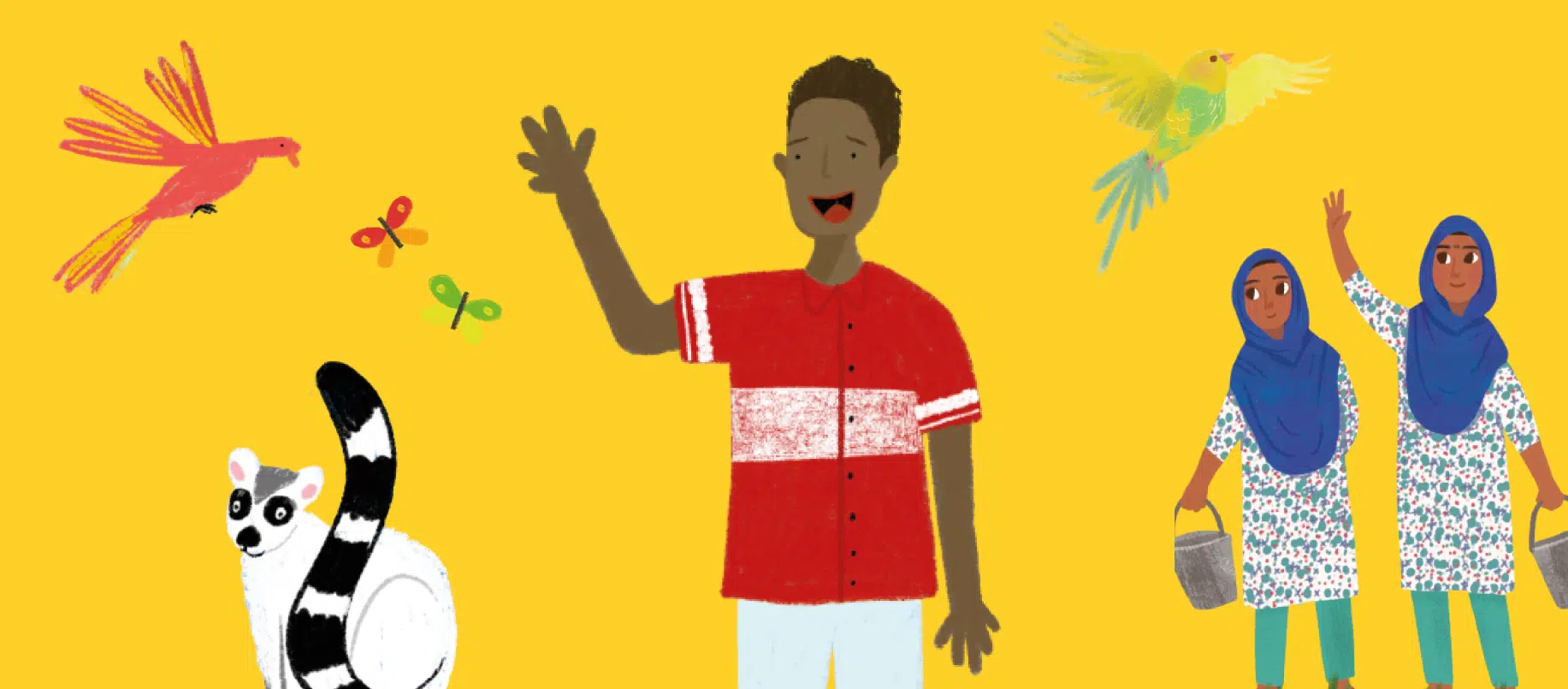Did you know that all our Wonderbooks children’s books are inspired by real-life children who Save the Children has worked with?
Wonderbooks is a children’s book subscription with a difference. By supporting Save the Children through Wonderbooks, you’re helping kids around the world explore a world bursting with possibility. Children like Maryam, Lincoln, Rolo and Sera, from your last Wonderbooks will benefit from your donation and our work with local communities. Together we power possible, one book at a time!
How do we support these children and their families? We work to keep children safe, healthy and learning here in the UK and in other 117 countries. When children in the UK and around the world are well-fed, healthy and learning, we all have more reasons to smile. In 2020, we helped 45 million children across the world get the medicine, good food and education they need. Your support means small farmers in Somalia can grow crops that can resist droughts. It means we can make apps that link struggling families in Bangladesh to healthcare for their kids. It means Ukrainian children have child friendly play spaces in our refugee camps in Romania and Poland. In short, your monthly donation help keep kids safe, healthy and happy and it also promotes children’s voices – sparking a new generation of curious, determined people like you. Here we break down your £9 donation by our cost and your impact.
Since we’ve launched, we’ve sent around 25,000 Wonderbooks to more than 3,000 readers! Each donation has the power to help provide 1 child with a school-in-a-bag kit, buy 5 midwives’ birth kits or 1 kilos of maize seed . These respectively are a huge boost to a child’s education, help feed a hungry family and an increase in the wellbeing of newborn babies and their mothers.
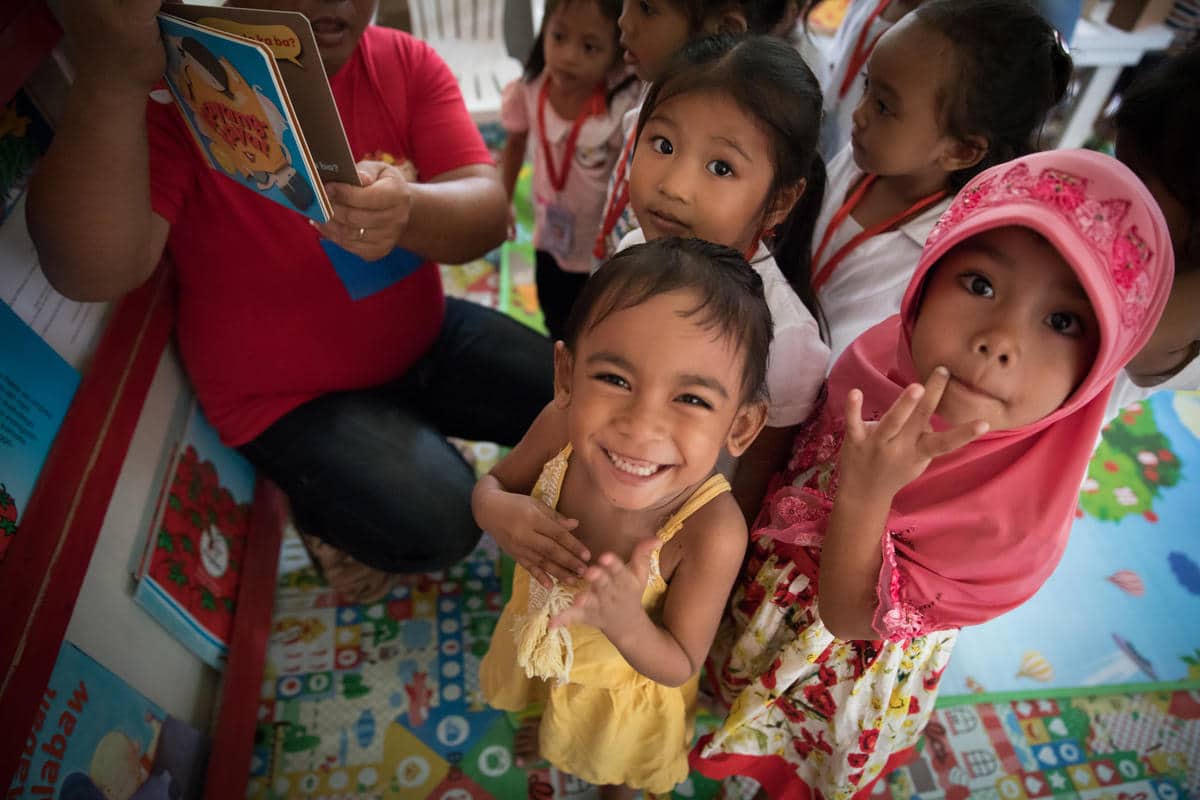
That’s all thanks to you and other WonderParents’ donations. We’ve also received amazing and heartwarming feedback on our children’s books from our WonderReaders.
From : Suzanne
“Fantastic, insightful books – a great resource to teach children about the world and the challenges faced by other children in other locations. Whilst these children have different challenges, it really is a fantastic example of resilience & adaptability to circumstance, that really helped my children understand how they would cope in different situations. The useful guides that accompany the books have brilliant discussion points and exercises to follow – my daughter wants to have a school like Munni’s 😊“
From: Emeline
“I cannot recommend these children’s books more highly. In my opinion they are an invaluable addition to the life of a child growing up in the western world where life is so privileged compared to the everyday challenges that other children face. My son is fascinated and humbled that he has a different life but in these stories he can see hear about the lives and countries of others always infused with what is universal, love, friendship and family. I am proud my son is growing up to be a child of the world not a small corner of our extraordinary globe.”
Thank you again. With your incredible support, we can make sure more children, like the ones in Wonderbooks, get a chance of the future they deserve. If you enjoyed reading our real life story books, it would be great if you could leave us a Trustpilot review.
If you know someone who might enjoy Wonderbooks or you think your child’s library might enjoy a set please feel free to pass on the word of mouth!
Photo Credit: Hanna Adcock / Save the Children
